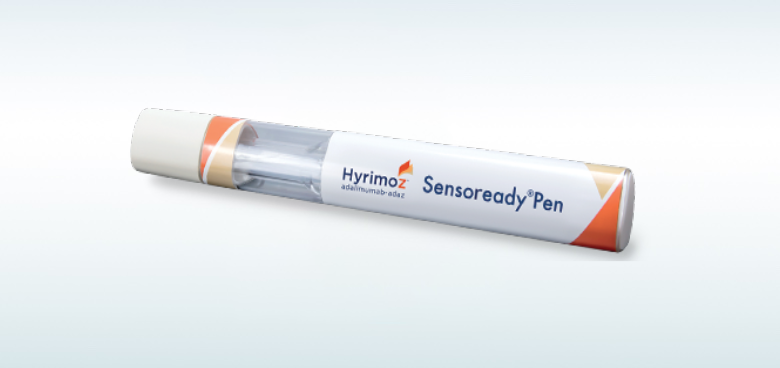Offering 2 presentations ensures broader access for your patients.
Insurance coverage will determine whether your patient receives HYRIMOZ or adalimumab-adaz.
HYRIMOZ
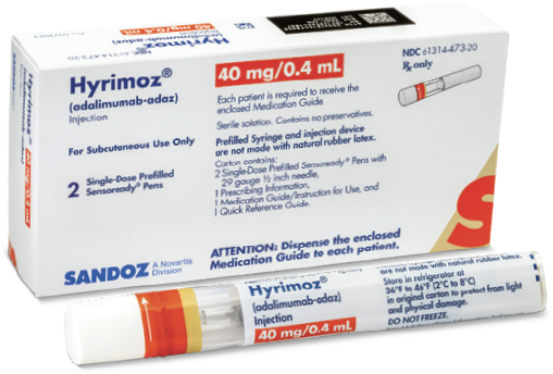
High WAC
adalimumab-adaz
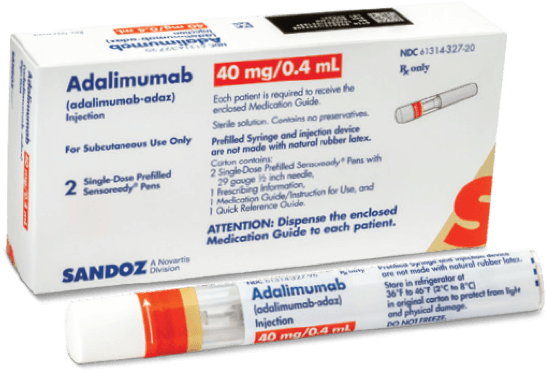
Low WAC
aAlso available in a prefilled syringe for certain dosages.
bClick here to see Terms and Conditions.
WAC=wholesale acquisition cost.
EHR tips to ensure your patients get the Sandoz adalimumab biosimilar

Look for the suffix "adaz" in your EHR

Pick 6: The NDC for a Sandoz adalimumab will always start with 61314. Pick 6 to get HYRIMOZ or adalumumab-adaz

For future access, set HYRIMOZ and adaz as favorites
The Sensoready pen has useful features patients will1:
The Sensoready pen has useful features they will1:



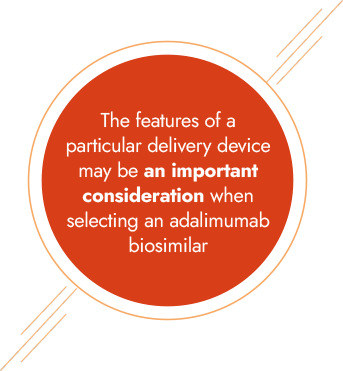

SEE, HEAR, and FEEL the features for yourself with one of our Sensoready training devices!
Request a visit from a Sandoz representative
The Sensoready pen was recommended among patients and nurses2,3
Based on a survey of moderate-to-severe RA–treating nurses (n=100) and patients (n=200) in Germany, UK, Spain, France, and Italy. The Sensoready demonstration pen was not injected during the survey, nor were all devices compared against each other by all patient participants.
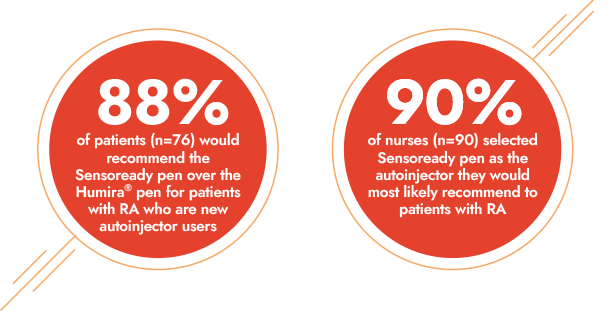
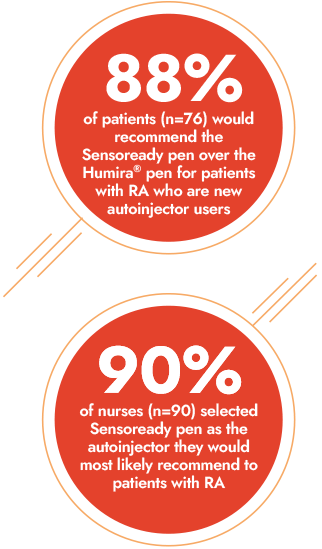
The Sensoready pen: Designed with patients in mind
Hear Dr Wells, a rheumatologist, discuss the features of the Sensoready pen and how a device can make a difference with patients.
The Sensoready pen training video
This training video walks patients through the Sensoready pen injection experience. It is also available on HYRIMOZ.com for you to share with your patients to support a successful injection. For complete injection information, see the Instructions for Use section of the Prescribing Information.
HYRIMOZ and adalimumab-adaz dosing information1
Please see full indications below.
Choose an indication:

Every other week: 40 mg SC inj.
OR
Every week: 40 mg SC inj.c
OR
Every other week: 80 mg SC inj.c
cOnly for patients not taking concomitant methotrexate.
Dosing considerations: Methotrexate, other nonbiologic disease-modifying antirheumatic drugs, glucocorticoids, nonsteroidal anti-inflammatory drugs, and/or analgesics may be continued during treatment with adalimumab-adaz.

10 kg (22 lbs) to
<15 kg (33 lbs)
Every other week:
10 mg SC inj.
15 kg (33 lbs) to
<30 kg (66 lbs)
Every other week:
20 mg SC inj.
≥30 kg (66 lbs)
Every other week:
40 mg SC inj.
Dosing considerations: Methotrexate, glucocorticoids, nonsteroidal anti-inflammatory drugs, and/or analgesics may be continued during treatment with adalimumab-adaz.
Adalimumab products have not been studied in patients with polyarticular juvenile idiopathic arthritis less than 2 years of age or in patients with a weight below 10 kg.

Every other week: 40 mg SC inj.
Dosing considerations: Methotrexate, other nonbiologic disease-modifying antirheumatic drugs, glucocorticoids, nonsteroidal anti-inflammatory drugs, and/or analgesics may be continued during treatment with adalimumab-adaz.

Every other week: 40 mg SC inj.
Dosing considerations: Methotrexate, other nonbiologic disease-modifying antirheumatic drugs, glucocorticoids, nonsteroidal anti-inflammatory drugs, and/or analgesics may be continued during treatment with adalimumab-adaz.

Day 1: 160 mg SC inj. (given in one day or split over two consecutive days)
Day 15: 80 mg SC inj.
Starting on Day 29:
Every other week: 40 mg SC inj.
Dosing considerations: Aminosalicylates, corticosteroids, azathioprine, 6-mercaptopurine or methotrexate may be continued during treatment with adalimumab-adaz.

17 kg (37 lbs) to
<40 kg (88 lbs)
40 kg (88 lbs)
and greater
Day 1:
80 mg SC inj.
Day 15:
40 mg SC inj.
Day 1:
160 mg SC inj.
(given in one day or split over two consecutive days)
Day 15:
80 mg SC inj.
Starting on Day 29:
Every other week:
20 mg SC inj.
Starting on Day 29:
Every other week:
40 mg SC inj.

Day 1: 160 mg SC inj. (given in one day or split over two consecutive days)
Day 15: 80 mg SC inj.
Starting on Day 29:
Every other week: 40 mg SC inj.
Dosing considerations: Discontinue adalimumab-adaz in adult patients without evidence of clinical remission by eight weeks (Day 57) of therapy. Aminosalicylates, corticosteroids, azathioprine, and 6-mercaptopurine may be continued during treatment with adalimumab-adaz.

Day 1: 80 mg SC inj.
Starting one week after initial dose:
Every other week: 40 mg SC inj.
The use of adalimumab products in moderate-to-severe chronic plaque psoriasis beyond 1 year has not been evaluated in controlled clinical studies.

Day 1: 160 mg SC inj. (given in one day or split over two consecutive days)
Day 15: 80 mg SC inj.
Starting on Day 29:
Every week: 40 mg SC inj.
OR
Every other week: 80 mg SC inj.

Day 1: 80 mg SC inj.
Starting one week after initial dose:
Every other week: 40 mg SC inj.
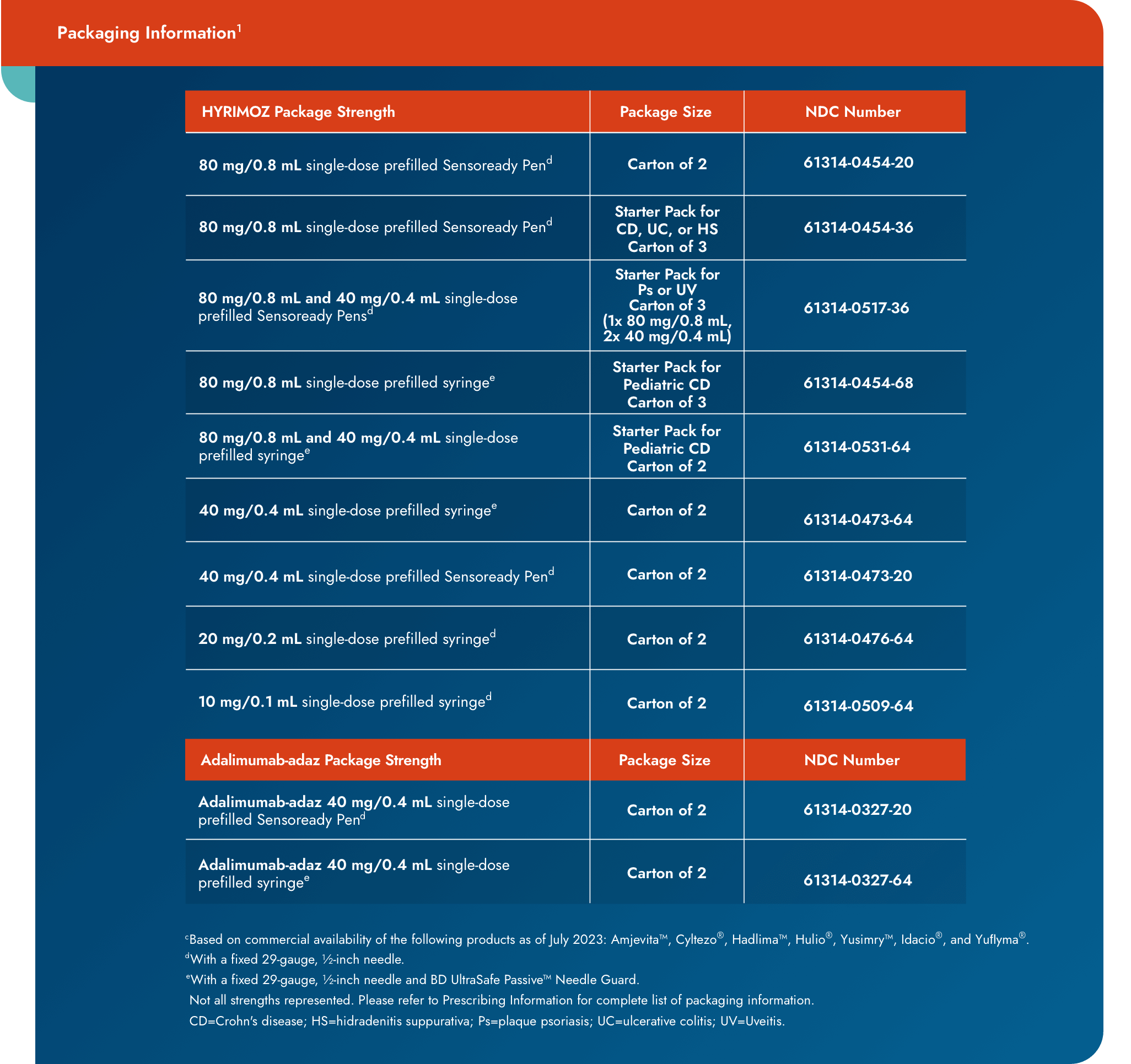

cWith a fixed, 29-gauge, ½-inch needle.
dWith a fixed, 29-gauge, ½-inch needle and with BD UltraSafe Passive™ Needle Guard.
eAvailable in 2025.
CD=Crohn's disease; HS=hidradenitis suppurativa; Ps=plaque psoriasis; UC=ulcerative colitis; UV=uveitis.
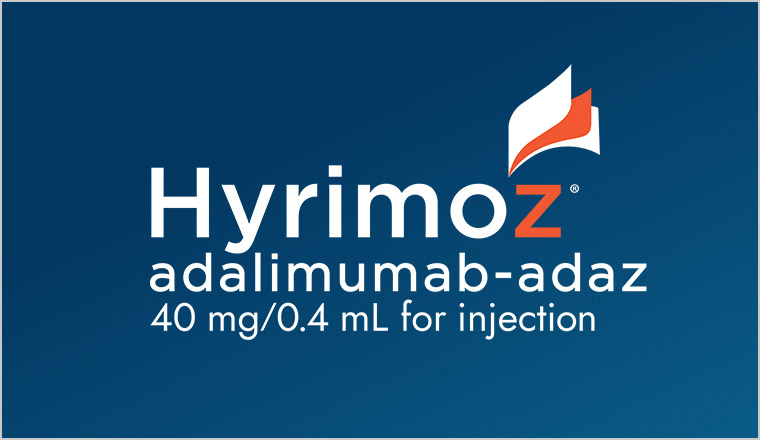
Request a visit from a Sandoz representative
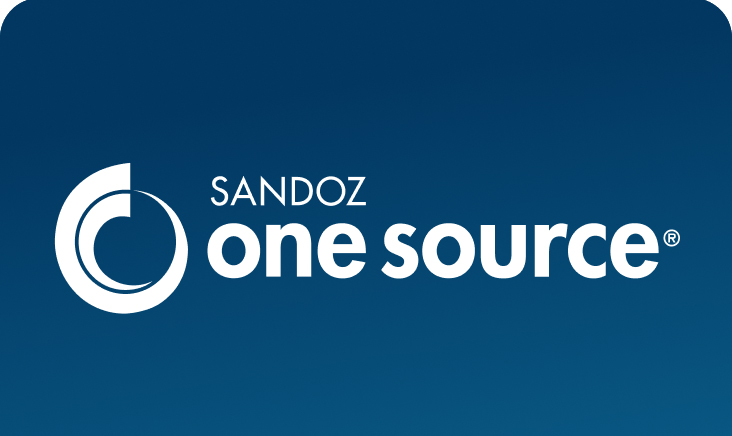
Sandoz One Source

Still have questions?
INDICATIONS: HYRIMOZ® (adalimumab-adaz) injection for subcutaneous use, a prescription medication, is a tumor necrosis factor (TNF)-blocker indicated for:
- Rheumatoid Arthritis (RA): Alone or in combination with methotrexate or other non-biologic disease-modifying anti-rheumatic drugs (DMARDs), for reducing signs and symptoms, inducing major clinical response, inhibiting the progression of structural damage, and improving physical function in adult patients with moderately to severely active RA
- Juvenile Idiopathic Arthritis (JIA): Alone or in combination with methotrexate for reducing signs and symptoms of moderately to severely active polyarticular JIA in patients 2 years of age and older
- Psoriatic Arthritis (PsA): Alone or in combination with non-biologic DMARDs, for reducing signs and symptoms, inhibiting the progression of structural damage, and improving physical function in adult patients with active PsA
- Ankylosing Spondylitis (AS): Reducing signs and symptoms in adult patients with active AS
- Crohn’s Disease (CD): Treatment of moderately to severely active CD in adults and pediatric patients 6 years of age and older
- Ulcerative Colitis (UC): Treatment of moderately to severely active UC in adult patients
Limitations of use: The effectiveness of adalimumab products has not been established in patients who have lost response to or were intolerant to TNF blockers. - Plaque Psoriasis (Ps): Treatment of adult patients with moderate to severe chronic Ps who are candidates for systemic therapy or phototherapy, and when other systemic therapies are medically less appropriate. HYRIMOZ should only be administered to patients who will be closely monitored and have regular follow-up visits with a physician
- Hidradenitis Suppurativa (HS): Treatment of moderate to severe HS in adult patients
- Uveitis: Treatment of non-infectious intermediate, posterior, and panuveitis in adult patients
IMPORTANT SAFETY INFORMATION:
WARNING: SERIOUS INFECTIONS and MALIGNANCY
SERIOUS INFECTIONS
Patients treated with adalimumab products, including HYRIMOZ, are at increased risk for developing serious infections that may lead to hospitalization or death. Most patients who developed these infections were taking concomitant immunosuppressants such as methotrexate or corticosteroids.
Discontinue HYRIMOZ if a patient develops a serious infection or sepsis.
Reported infections include:
- Active tuberculosis (TB), including reactivation of latent TB. Patients with TB have frequently presented with disseminated or extrapulmonary disease. Test patients for latent TB before HYRIMOZ use and during therapy. Initiate treatment for latent TB prior to HYRIMOZ use
- Invasive fungal infections, including histoplasmosis, coccidioidomycosis, candidiasis, aspergillosis, blastomycosis, and pneumocystosis. Patients with histoplasmosis or other invasive fungal infections may present with disseminated, rather than localized, disease. Antigen and antibody testing for histoplasmosis may be negative in some patients with active infection. Consider empiric anti-fungal therapy in patients at risk for invasive fungal infections who develop severe systemic illness
- Bacterial, viral, and other infections due to opportunistic pathogens, including Legionella and Listeria
Carefully consider the risks and benefits of treatment with HYRIMOZ prior to initiating therapy in patients with chronic or recurrent infection.
Monitor patients closely for the development of signs and symptoms of infection during and after treatment with HYRIMOZ, including the possible development of TB in patients who tested negative for latent TB infection prior to initiating therapy.
MALIGNANCY
Lymphoma and other malignancies, some fatal, have been reported in children and adolescent patients treated with TNF blockers including adalimumab products. Post-marketing cases of hepatosplenic T-cell lymphoma (HSTCL), a rare type of T-cell lymphoma, have been reported in patients treated with TNF-blockers including adalimumab products. These cases have had a very aggressive disease course and have been fatal. The majority of reported TNF blocker cases have occurred in patients with Crohn's disease or ulcerative colitis and the majority were in adolescent and young adult males. Almost all these patients had received treatment with azathioprine or 6-mercaptopurine (6–MP) concomitantly with a TNF blocker at or prior to diagnosis. It is uncertain whether the occurrence of HSTCL is related to use of a TNF blocker or a TNF blocker in combination with these other immunosuppressants.
WARNINGS AND PRECAUTIONS
Serious Infections
- Do not start HYRIMOZ during an active infection, including localized infections
- If an infection develops, monitor carefully, and stop HYRIMOZ if infection becomes serious. Drug interactions with biologic products: A higher rate of serious infections has been observed in RA patients treated with rituximab who received subsequent treatment with a TNF blocker. An increased risk of serious infections has been seen with the combination of TNF blockers with anakinra or abatacept, with no demonstrated added benefit in patients with RA. Concomitant administration of HYRIMOZ with other biologic DMARDs (eg, anakinra or abatacept) or other TNF blockers is not recommended based on the possible increased risk for infections and other potential pharmacological interactions
- Patients 65 years of age and older, patients with co-morbid conditions and/or patients taking concomitant immunosuppressants may be at greater risk of infection
- Invasive fungal infections: For patients who develop a systemic illness on HYRIMOZ, consider empiric antifungal therapy for those who reside or travel to regions where mycoses are endemic
Malignancies
- In clinical trials, incidence of malignancies was greater in adalimumab-treated patients than in controls
- Consider the risks and benefits of TNF blocker-treatment, including HYRIMOZ, prior to initiating therapy in patients with known malignancy
- Non-melanoma skin cancer (NMSC) was reported during clinical trials for adalimumab-treated patients. Examine all patients, particularly those with a history of prolonged immunosuppressant or PUVA therapy for the presence of NMSC prior to and during treatment with HYRIMOZ
- In the adalimumab clinical trials there was an approximate 3-fold higher rate of lymphoma than expected in the general US population. Patients with chronic inflammatory diseases, particularly those with highly active disease and/or chronic exposure to immunosuppressant therapies, may be at a higher risk than the general population for the development of lymphoma, even in the absence of TNF blockers
- Post-marketing cases of acute and chronic leukemia have been reported in association with TNF-blocker use. Approximately half of the post-marketing cases of malignancies in children, adolescents, and young adults receiving TNF blockers were lymphomas; other cases represented a variety of different malignancies and included rare malignancies usually associated with immunosuppression and malignancies that are not usually observed in children and adolescents
Hypersensitivity Reactions
- Anaphylaxis or serious allergic reactions have been reported following administration of adalimumab products. If an anaphylactic or other serious hypersensitivity reaction occurs, immediately discontinue administration of HYRIMOZ and institute appropriate therapy
Hepatitis B Virus Reactivation
- Use of TNF blockers, including HYRIMOZ, may increase the risk of reactivation of hepatitis B virus (HBV) in patients who are chronic carriers. Some cases have been fatal
- Evaluate patients at risk for HBV infection for prior evidence of HBV infection before initiating TNF blocker therapy
- Exercise caution in patients identified as carriers of HBV and closely monitor during and after HYRIMOZ treatment
- In patients who develop HBV reactivation, stop HYRIMOZ and initiate effective anti-viral therapy. Exercise caution when resuming HYRIMOZ after HBV treatment
Neurologic Reactions
- Use of TNF-blocking agents, including adalimumab products, has been associated with rare cases of new onset or exacerbation of central nervous system and peripheral demyelinating disease, including multiple sclerosis (MS), optic neuritis, and Guillain-Barré syndrome
- Exercise caution when considering HYRIMOZ for patients with these disorders; discontinuation of HYRIMOZ should be considered if any of these disorders develop
- There is a known association between intermediate uveitis and central demyelinating disorders
Hematological Reactions
- Rare reports of pancytopenia, including aplastic anemia, have been reported with TNF-blocking agents. Medically significant cytopenia has been infrequently reported with adalimumab products
- Consider stopping HYRIMOZ if significant hematologic abnormalities occur
Heart Failure
- Worsening and new onset congestive heart failure (CHF) has been reported with TNF blockers. Cases of worsening CHF have also been observed with adalimumab products; exercise caution and monitor carefully
Autoimmunity
- Treatment with adalimumab products may result in the formation of autoantibodies and, rarely, in the development of a lupus-like syndrome. Discontinue treatment if symptoms of a lupus-like syndrome develop
Immunizations
- Patients on HYRIMOZ should not receive live vaccines
- Pediatric patients, if possible, should be brought up to date with all immunizations prior to initiating HYRIMOZ therapy
- Adalimumab is actively transferred across the placenta during the third trimester of pregnancy and may affect immune response in the in utero exposed infant. The safety of administering live or live-attenuated vaccines in infants exposed to adalimumab products in utero is unknown. Risks and benefits should be considered prior to vaccinating (live or live-attenuated) exposed infants
ADVERSE REACTIONS
The most common adverse reactions (incidence >10%): infections (eg, upper respiratory, sinusitis), injection site reactions, headache, and rash.
Please see full Prescribing Information for HYRIMOZ, including Boxed Warning and Medication Guide.
To report SUSPECTED ADVERSE REACTIONS, contact Sandoz Inc. at 1-800-525-8747 or FDA at 1-800-FDA-1088 or www.fda.gov/medwatch.


